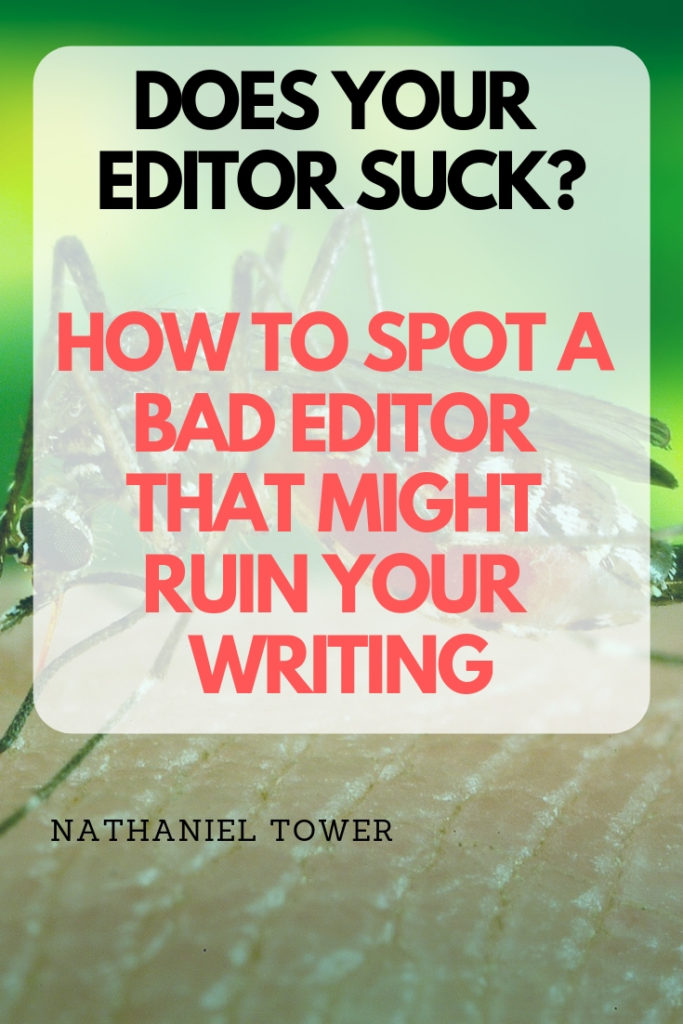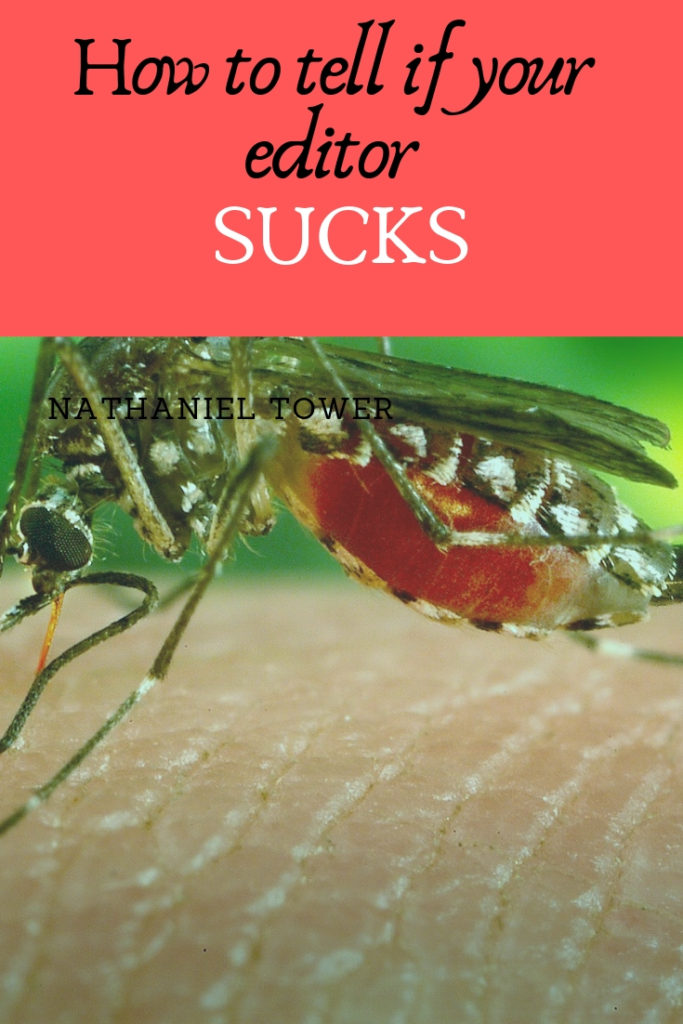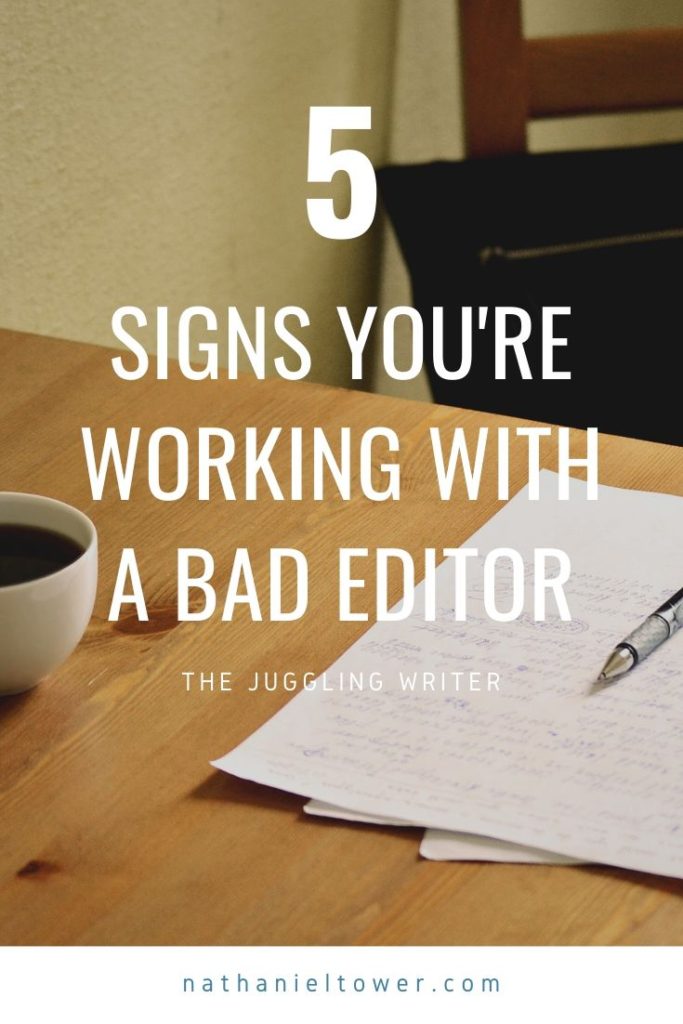Last Updated on June 6, 2020 by Nathaniel Tower
In the literary world, editors have a big job. Or at least they are supposed to. They are responsible for proofing, editing, formatting, and more. Sure, you did all the hard work when you wrote the story, but they make the story presentable. A great story can be marred by typos and other errors that attract the attention of the internet grammar police. And who is to blame when there is a typo in a story? Why, the editor of course.
Unfortunately, many editors aren’t interested in actually doing their jobs. Other editors overstep their bounds. What are the signs of a bad editor? Well, here are some that I have encountered:

1. The Copy-and-Paste Editor
These editors take the exact copy of the manuscript you sent and paste it onto their website. They don’t even bother to format the story for the web. Oftentimes, these copy and paste jobs will result in hideous looking stories (I’ve had published work that somehow morphed into one giant, unreadable paragraph).
2. The No-Concept-of-Time Editor
As writers, we want to know when our work is going to be published. But some editors won’t share this information with us. Maybe they don’t have a plan, or maybe they don’t want to involve us. Whatever the case, it can be frustrating to have a story in limbo for over three years (yup, I’ve had that happen). It’s also frustrating when an editor publishes a story without ever telling us it was accepted (yup, that’s happened to me too). An editor can at least provide a little information about publication.
3. The Secret Editor
Some editors want their process to be a big secret. They may let us know when our stories are going to be published, but they won’t let us see the final product before it goes live. I’ve been surprised more than once by the changes an editor made to my story. In some cases, I definitely would not have approved of their edits.
4. The Impossible-To-Please Editor
Some editors are never happy. Even though they are the ones who accepted your story, they are never satisfied with the “final” draft. I’ve had some editors want me to go through ten rounds of editing before a story is published. While this might be comforting in the case of a novel, no one needs to go through so much hassle for a non-paying 500-word publication.
5. The Wanna-Be-Author Editor
These editors swoop in and pretend the story is their own. Rather than offering constructive suggestions for changes, they do what they would have done had they written the story. Sometimes, they wish they had written the story so badly that they make changes so big they probably deserve co-authoring credits. Unfortunately, I was once the victim of the wanna-be-author editor. When my story was finally published (in a prestigious journal mind you), she had rewritten the last two pages of my story. When I say she rewrote it, I mean that nothing from the last two pages was mine. The story sucked, and one of my biggest supporters asked what the heck I was thinking with that one.
Have you encountered any other sucky editors? Share your editor horror stories in the comments. And be sure to share this post on all your favorite channels.



I quit a magazine a few years back when I was a poetry editor because the general editor accepted work and then kind of decided she didn’t have time to run a magazine anymore. She sat on the work for months after I quit and never did publish it. I asked her to remove my name from the masthead because I was embarrassed to be associated with such unprofessional behavior, but there I stayed until the bitter end. Writers deserve better treatment.
Joani, thank you for sharing your story. Sounds like a very unprofessional operation. Unfortunately, there are quite a few literary magazines that don’t take a professional approach.
Reblogged this on Intern With A Blue Skuftin.